If you think knowing English means you can roll up anywhere in the States and fit right in, Miami’s got news for you. Step off the plane in the 305 and you’ll quickly realize there’s something different happening here. In fact, linguists are closely tracking how this whole new way of speaking is taking shape in South Florida.
So we did what any curious person would do and spent time figuring out what locals are actually saying. Turns out, a lot of these phrases do have familiar English roots, but Miami’s taken them and made them something entirely new. For instance, you’ll hear Spanish mixed in naturally (though it's not quite Spanglish), plus influences from all the Caribbean cultures that call this place home.
Whether you’re moving here or just don’t want to stand around nodding blankly while everyone else is cracking up, these expressions will help you actually follow the conversation. And honestly? Learning these might just make you curious enough to pick up some Spanish too.
- 19 Best Spanish Series on Netflix For Learning Spanish Fast
- 24+ Easy Cuban Slang Words That Only Locals Understand
- 100 Easy Spanish Words For Beginners [+ Tips]

What Language Is Spoken In Miami?
Spanish dominates Miami with over 70% of the population speaking it, making it more common than English in daily conversations. Despite this, English still holds more social status and is considered "more important" for business and advancement.
This language mixing, which intensified after the 1959 Cuban Revolution brought hundreds of thousands of Cubans to South Florida, created one of the most significant linguistic changes in the Americas.
The result?
Linguists have identified "Miami English," a new dialect in which Spanish phrases are directly translated into English, creating expressions like “get down from the car” (from Spanish "bajar del carro") and “make a party” (from "hacer una fiesta").
- Spanish: Most spoken at 70%+ of residents, used across business, healthcare, and daily life
- English: Native language for only 25% but viewed as more prestigious •
- Haitian Creole: Third most common, concentrated in Little Haiti •
- Portuguese: Fourth most spoken, growing with Brazilian immigration
- French: Fifth most common, from French-Canadians and Haitian communities
Miami Slang Words And Phrases
Supposably
This is Miami's way of saying "supposedly." It means "allegedly" or "I heard that." Miamians drop the "D" sound, so instead of "supposedly they broke up," you hear "supposably they broke up." Given that it's ungrammatical, this Florida slang word is believed to come from Spanish speakers learning English as a second language.
Dale
Dale means "let's go," "okay," "yes," "do it," or "goodbye," depending on the context. It comes from Spanish, meaning "give it," but Pitbull's Dale made it Miami's signature word. You can use it to agree, show excitement, or say bye. When texting, you can also add more "e's" like "dalééé!" to show more emotion.
Irregardless
This means exactly the same as "regardless." You use it to dismiss something or say "no matter what" or "anyway." While grammar experts dislike it, this Florida word is standard Miami slang that locals use constantly in everyday conversation.
Pero like
This is Miami's Spanglish way of saying "but like." "Pero" means "but" in Spanish. You mainly use it to introduce a new point or continue a thought in conversations.
Comiendo mierda
In Spanish, this literally means "eating shit," but in Miami, it means you're doing nothing, being bored, or wasting time. It comes from the Spanish phrase for someone who’s not productive or just hanging around. You use it when someone asks what you’re doing, and you’re basically just lounging around.
Pata sucia
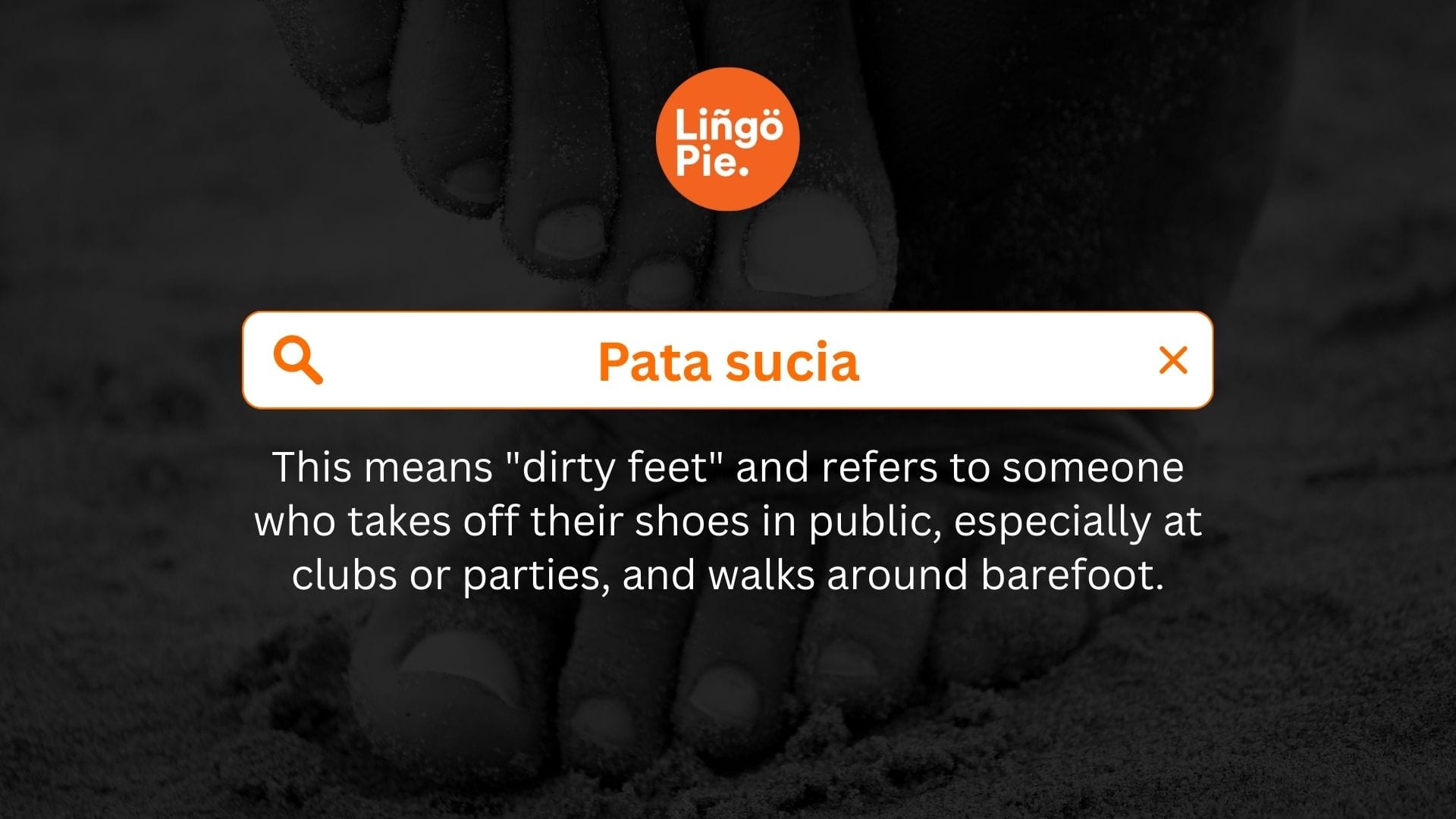
This means "dirty feet" and refers to someone who takes off their shoes in public, especially at clubs or parties, and walks around barefoot. It usually describes girls who remove their high heels because their feet hurt and continue dancing or walking around without shoes. You wouldn’t want to be called this since it means you're walking around with literally dirty feet.
Bro
In Miami, bro is a unisex word that means "friend," "dude," or just a way to address anyone regardless of gender, age, or relationship. Pretty much like how you use "bruh" in English, this Miami slang word can be used to start sentences, end sentences, or just emphasize what you're saying.
Getty
This means a small house gathering or get-together with friends that's more chill than a full party but bigger than just hanging out. It usually starts with a few close friends, but often grows when people bring other friends.
Guagua
This means "bus" or public transportation. It comes from Caribbean Spanish, specifically Cuba, Puerto Rico, and the Dominican Republic. According to the locals, the word came from an old American bus company called "Wa & Wa Co." and from the English word "wagon."
Ya tu sabes
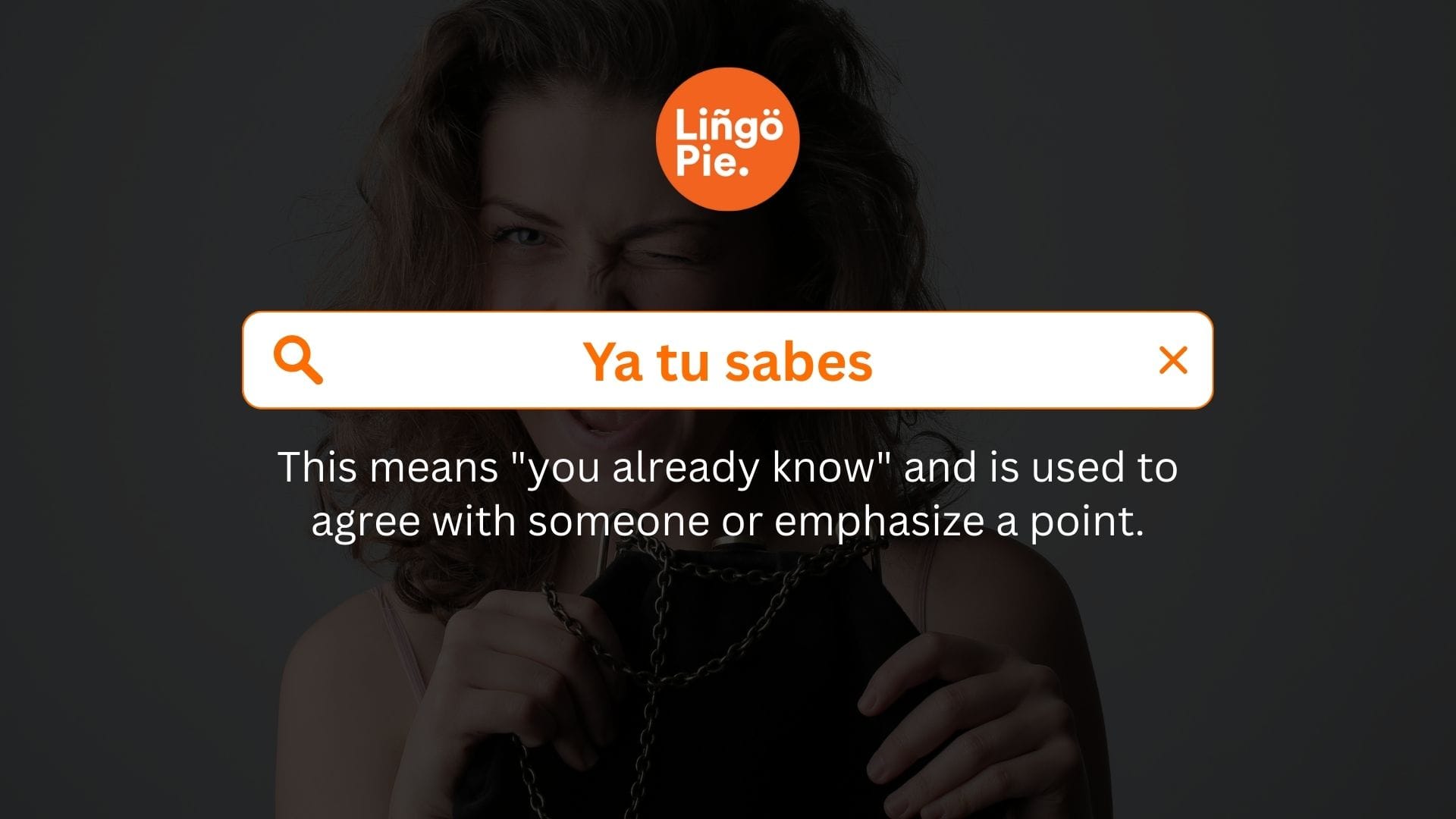
This means "you already know" and is used to agree with someone or emphasize a point. In Miami, people use it like saying "you know what's up" or "obviously." When someone says, "That party was crazy last night," you respond, "ya tu sabes" to agree. When pronouncing it, sometimes the "s" sound fades away, so it sounds like "ya tu sabe."
Chonga
This describes a specific style of young Latina woman, usually Cuban or Puerto Rican, who wears big hoop earrings (often with her name), dark lip liner, tight clothes, gelled hair, and lots of jewelry.
Qué bolá asere?
"Qué bolá" means "what's up," and "asere" means "friend" or "bro." You use this to greet close friends in a casual, friendly way.
Hacer un show
This means to act overly dramatic, be attention-seeking, or make a big scene about something. Here, "Hacer" means "to make" and "show" is English, creating this Spanglish phrase.
Liga
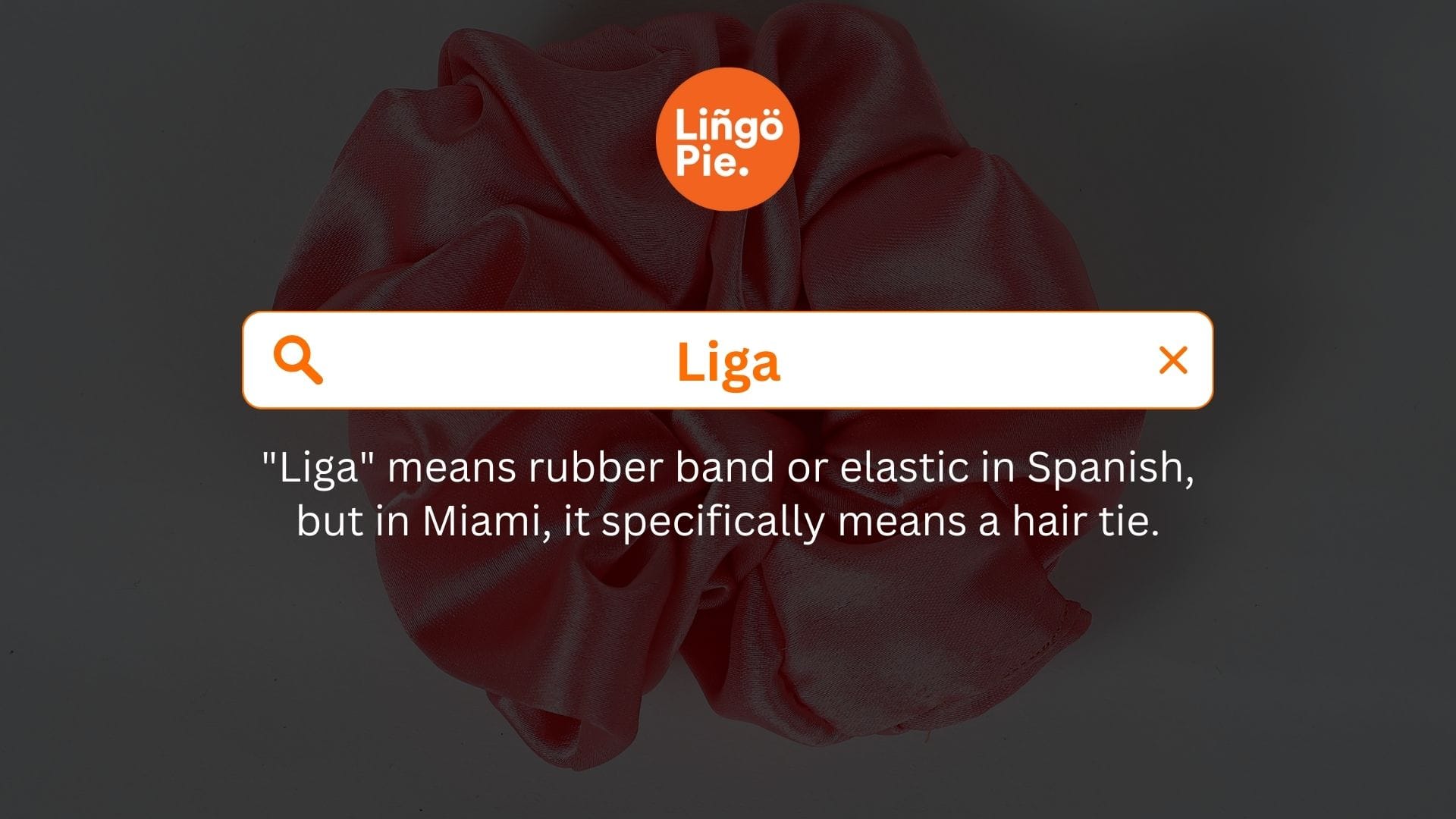
"Liga" means rubber band or elastic in Spanish, but in Miami, it specifically means a hair tie. When Miami girls need to put their hair up in the humidity, they ask, "¿Me das una liga?"
Cógelo con take it easy
Is your friend stressed or overreactive? You can say this Miami slang to them! Basically, "Cógelo con" means "take it with" in Spanish, but when combined with English "take it easy," it creates this double-layered expression meaning "chill out" or "relax."
Chancs
Short for "chancletas" - the iconic Cuban/Latino flip-flop that serves dual purposes: basic footwear and weapon! Well, not exactly to hurt someone but usually a weapon for moms for misbehaving kids.
Lidderlee
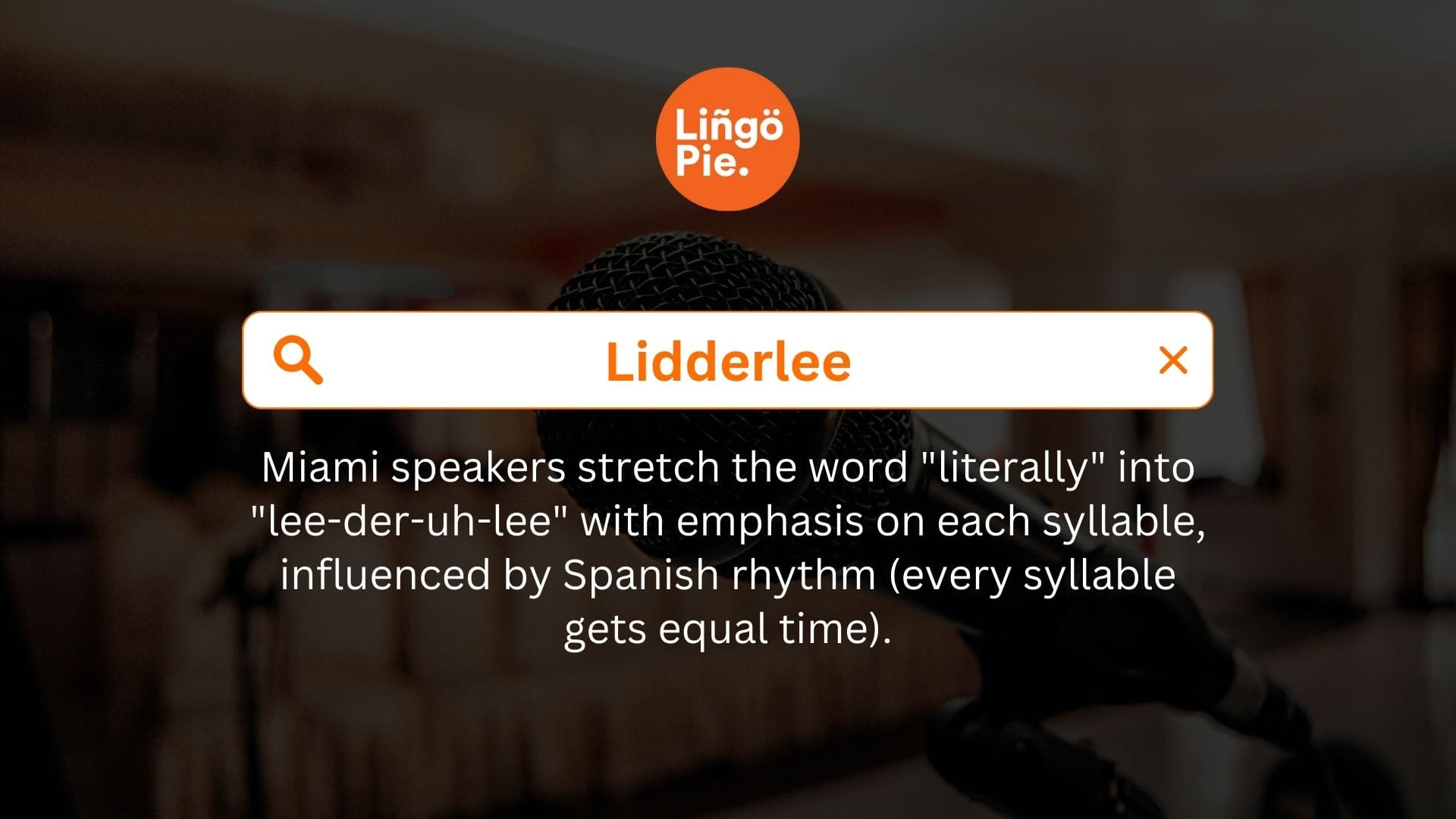
Miami speakers stretch the word "literally" into "lee-der-uh-lee" with emphasis on each syllable, influenced by Spanish rhythm (every syllable gets equal time). They use it constantly for emphasis, like in "I lidderlly can't" or "That's lidderlly so crazy."
Pop a U-ey
While this exists elsewhere in America, it's an important Miami vocabulary because of the city's chaotic traffic and confusing layout. Miami drivers constantly need to make quick U-turns due to missed exits, construction, or sudden plan changes.
Get down from the car
Spanish "bajar del carro" literally translates to "get down from the car," not "get out of the car." Generations of Spanish speakers have directly translated this phrase, and now even native English speakers in Miami use it.
Want To Try Spanish?
Maybe all this Miami slang has sparked something – like it's finally time to learn Spanish? Well, the truth is that understanding the language behind these expressions would completely change how you experience the city. In fact, this same love for learning about culture and language is what inspired me to try Lingopie.
Lingopie is nothing like the dry textbooks I remember from school...it's just real shows and movies in Spanish! You know, the kind you’d watch anyway! With an account, I got exposed to different Spanish accents, street slang, and everyday phrases without even trying too hard.
After a week on their free trial, I was already catching bits of conversations on the street. Trust me, it’s the easiest, most fun start I’ve ever had with a new language.
And here’s the best part: Lingopie gives you a free 7-day trial to experience pure immersion. By the end of the week, you’ll be surprised at how many words and phrases you’re suddenly catching. Give it a shot now!


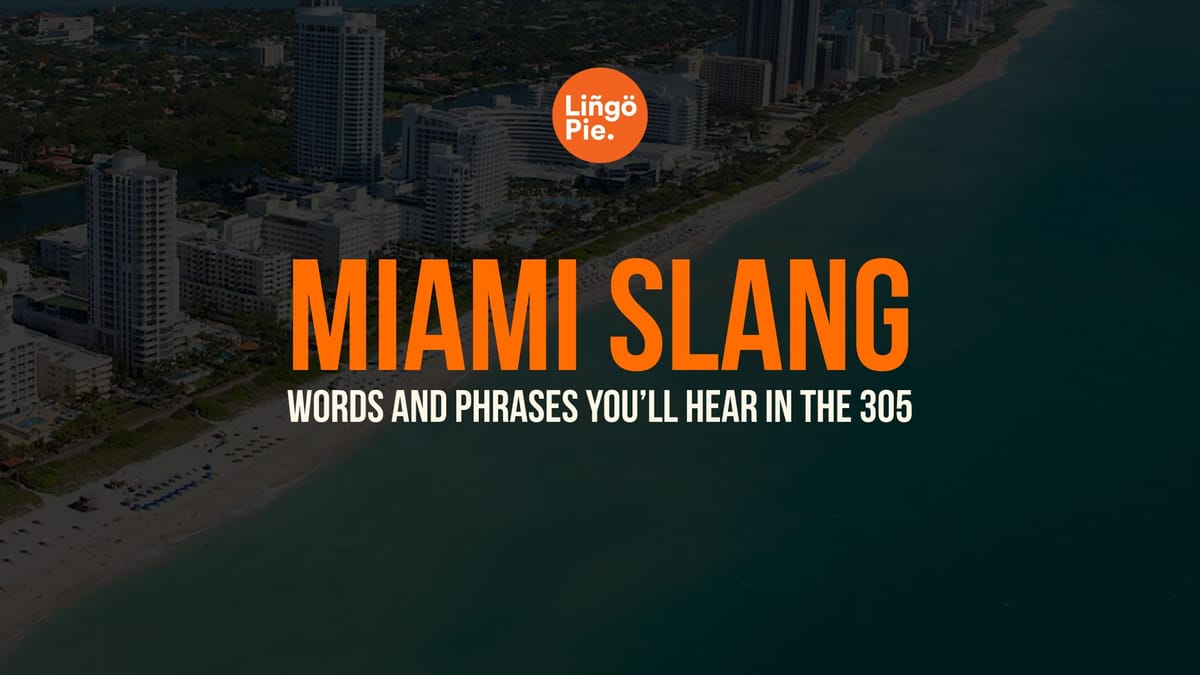






![Improve Your English Listening Comprehension [2026 Guide]](/blog/content/images/size/w300/2023/12/5D8A320F-7EF3-4F0F-9EDD-0F91C9504FA0.png)